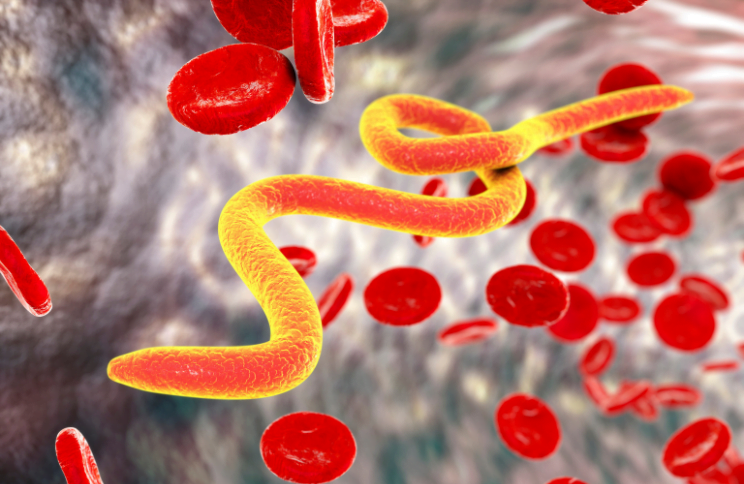

01
Apr
The Silent Invaders Within: Understanding and Tackling Intestinal and Systemic Parasites

In the intricate ecosystem of the human body, there’s a dark and often overlooked presence – parasites. These organisms live off a host, sometimes causing dramatic shifts in health that can go unnoticed or be mistaken for other illnesses. From the gut-wrenching misery of intestinal worms to the widespread havoc of systemic parasites, understanding their presence and effect on health is paramount to personal well-being. In this article, we will dissect the topic of parasites, discussing their impacts on human health, routes of infection, and strategies to combat them.
The Distinction and Dilemma of Intestinal and Systemic Parasites
Parasites come in various forms but are generally classified into two main groups based on where they reside within the body. Intestinal parasites, as the name suggests, reside in the intestines, which can lead to digestive complications and malabsorption of nutrients. Common examples include giardia, roundworms, and hookworms. On the other hand, systemic parasites have a broader habitat, infiltrating not just the intestines but also other body systems, such as the bloodstream, liver, or brain. This group includes protozoa-like Toxoplasma gondii—associated with cat feces—and tapeworms, capable of traveling to organs throughout the body.
Understanding the distinction between these types is critical as it paves the way for tailored preventive measures and treatment protocols. While intestinal parasites can wreak havoc in the gut, systemic parasites risk severe, life-threatening conditions if left unchecked.
The Health Implications and Red Flags of Parasitic Infections
Hosting these unsolicited roommates comes with a laundry list of potential health concerns!
Symptoms of parasitic infections can range from mild unease to severe discomfort and, in some cases, long-term health effects.
For those battling intestinal parasites, the tell-tale signs often manifest in digestive upsets, like diarrhea, nausea, bloating, general malaise, and weight loss.
Systemic infections can present a broader array of symptoms, such as fevers, headaches, and respiratory issues.
Long-term implications of parasitic infections can also be significant. For instance, chronic intestinal parasite infections may lead to malnutrition and stunting, particularly in children, hindering their physical and cognitive development. Understanding the subtle signs, like persistent malaise or unexplained weight fluctuations, can prompt action to secure your health against these stealthy invaders.
Sources of Parasitic Infection: Where Do They Come From?
Parasites are relentless in their search for new hosts and can travel via many pathways. Contaminated food and water are primary vectors for many intestinal parasites, highlighting the importance of safe consumption practices. Beyond these, animal-to-human transmission through pet feces or livestock contact and poor hygiene contribute to parasitic spread.
Intestinal parasites often find their way through undercooked meat, contaminated soil, or untreated water, while systemic parasites may come from encounters with animal manure or poorly sanitized environments. Awareness of these sources is crucial to building a robust defense against potential infections.
Natural Remedies and Diet for Parasite Prevention and Management
A wealth of knowledge surrounds natural remedies and dietary changes that may help prevent and manage parasitic infections. Garlic, due to its potent anti-parasitic properties, has been a staple in many traditional healing practices. Herbal infusions, such as those made from wormwood or black walnut, are also advocated for their potential to repel certain parasites.
On the dietary front, consuming a balanced and nutrient-rich diet can fortify the body’s defenses against parasitic invasions. Maintaining a healthy immune system through a diet—rich in fruits, vegetables, and lean proteins—can help the body fight off certain parasites.
Hygiene and Sanitation Against Parasites
Good hygiene practices are cornerstones of defense against parasitic infections. Personal hygiene, including regular hand washing, use of sanitary facilities, and safe waste disposal, is non-negotiable. In food and water safety, thorough cooking, washing raw foods, and consuming potable water are vital safety measures.
Sanitation at the environmental level is equally critical. Preventing the sharing of items like toothbrushes and combs, avoiding contamination of water sources, and controlling the population of disease vectors such as mosquitoes and fleas can limit the spread of parasites.
Final Word: A Call to Education and Health
The presence of parasites around and within us is a reality we cannot escape. However, armed with knowledge, hygiene, and a balanced lifestyle, we can significantly reduce the risk of infection and its insidious consequences. It echoes the age-old wisdom that prevention is better than cure, especially when the adversaries are as elusive and disruptive as parasites. By fostering an environment of awareness and health-conscious decisions, we protect ourselves and contribute to broader community well-being. The battle against parasites is an unseen yet crucial front in pursuing a healthy, harmonious life.
In the more significant health narrative, acknowledging and understanding parasites is akin to learning about a complex plotline in the body’s story. With each chapter of education and prudence, we inch closer to a tale of resilience and vitality, untainted by the invisible threats lurking within. This awareness serves as a beacon, guiding us through the intricacies of living in an ecosystem that extends beyond the visible world into the microscopic universe.
If you are interested in doing a parasite cleanse, you can find more information here.
